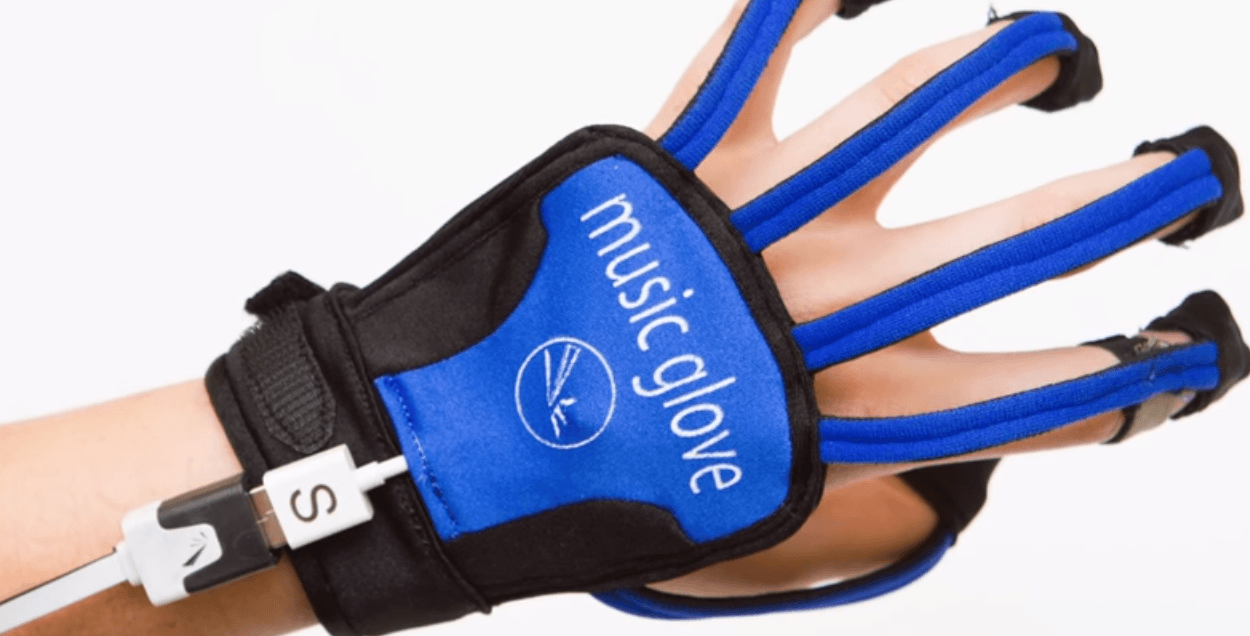Who knew that playing music and games could be a great medicine? People who have had strokes, spinal cord injuries, traumatic brain injuries and other disabilities that impact their hands can utilize a technology created by Flint Rehabilitation Devices called the MusicGlove. Certain rehabilitation clinics and people with nerve damage to their hands have been using the FDA approved device.
| https://www.youtube.com/watch?v=ZZYyEP4zAyg |
| The MusicGlove aims to help people with a number of hand related injuries. |
The MusicGlove is a device that a patient wears to help improve certain movements, as well as gripping. In addition to those with serious injuries, the MusicGlove could be handy for a number of musicians, who frequently suffer pain from playing the piano, the bass, the guitar, or producing on a keyboard.
“Engaging with music offers a form of therapy that will keep users motivated to continue their rehabilitation regimen, and facilitates a user’s hand’s ability to recover after a stroke,” said Nizan Friedman, Ph.D., president and co-founder of Flint Rehabilitation Devices, LLC. “As music is naturally highly repetitive, people using MusicGlove typically make over 2,000 movements in a 45 minute session. In rehab, the number of repetitions is one of the most important factors for regaining hand function. Users involved in clinical studies with the device love MusicGlove and are laughing, singing along, and enjoying the experience while seeing measurable results in a short period of time.”
A closer look at the software associated with the MusicGlove reveals a setup similar to the world-famous game “Guitar Hero.” Like the “Guitar Hero” concept, the user has to continuously make the right movements in order to move to a new level. The game keeps an accurate track of how the patient is doing and sets daily goals for them.
Instead of sticking to the traditional therapy of using rubber bands and stress balls, patients who used MusicGlove saw improvements in just two weeks.
“The glove senses when you make different grips like a key pinch grip or a pencil grip and you use that to play a really engaging musical computer game so your practicing hand grips and playing music at the same time,” said Dr. David Reinkensmeyer, professor of Biomedical Engineering at the University of California in Irvine.
The home version of the MusicGlove can be purchased for a total of $1,149.00 (or $99.00 a month for twelve months) while the clinical version starts at $4,199.00. The home version comes with a touch screen console, connector cables, custom MusicGlove headphones and one MusicGlove.





